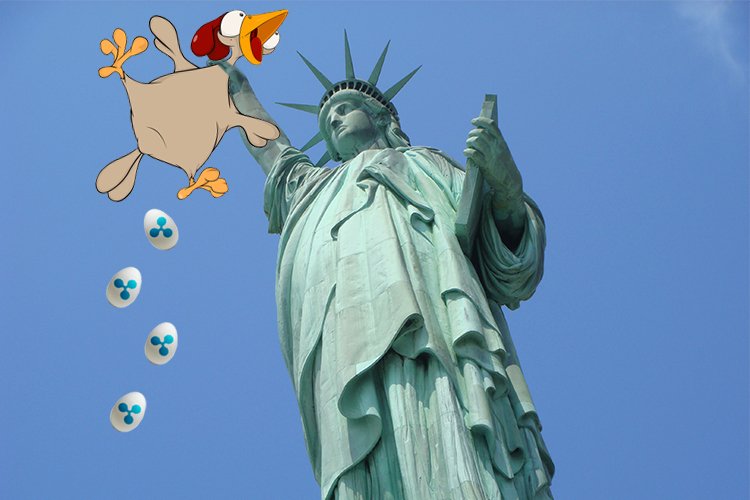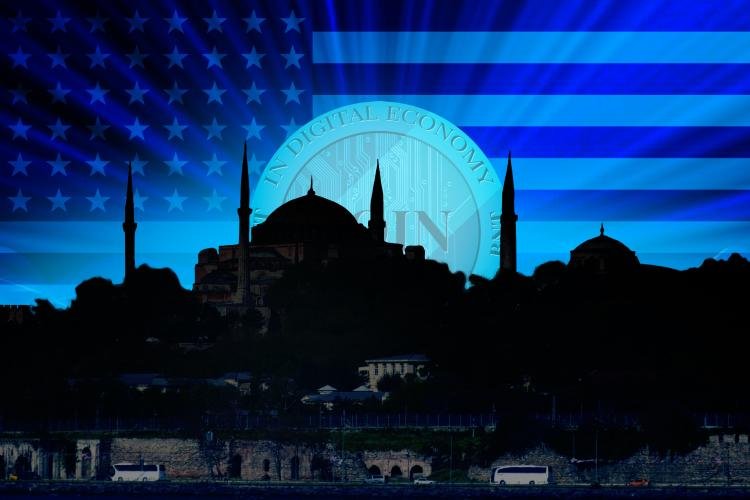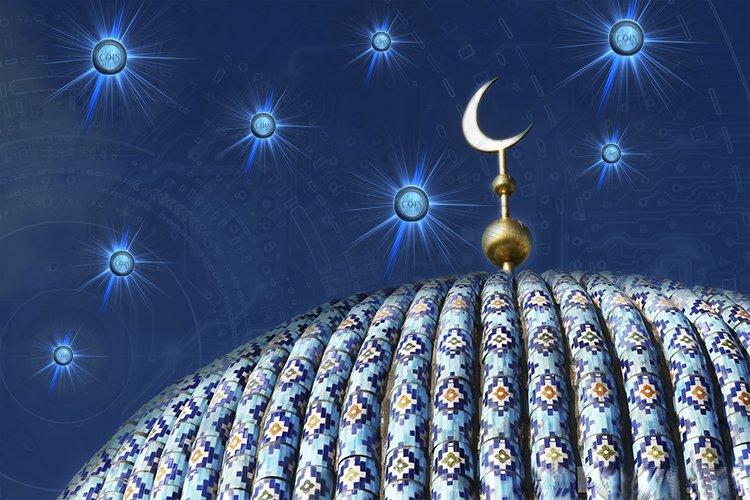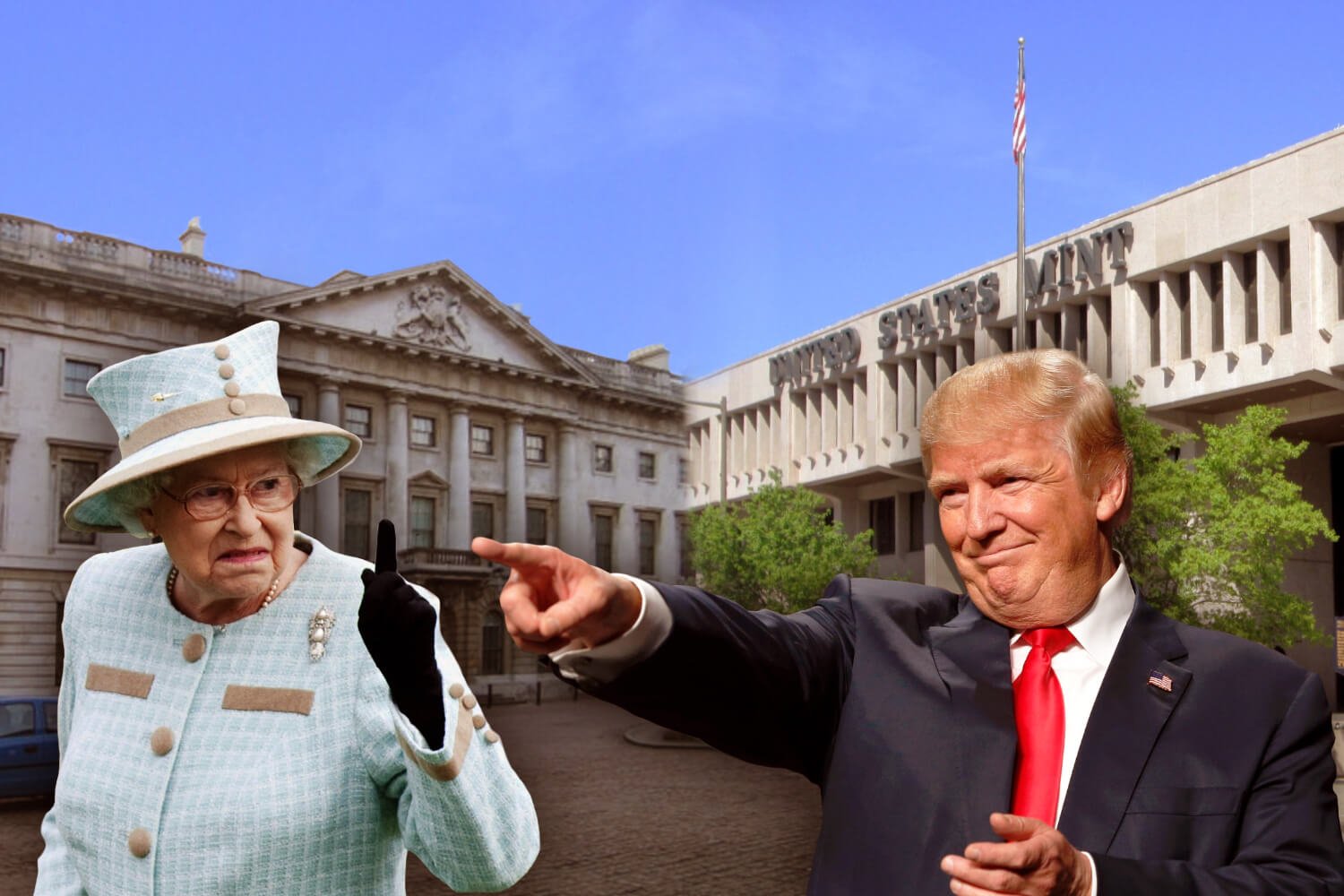High Moral Economy Of The Golden Crescent Against The Immoral Economy Of White Stars

The Islamic digital market is growing: the volume of transactions is increasing; crypto-exchanges that are found to conform to the law are being opened, and new halal cryptocurrencies are appearing. And for a long time, the story has been voiced to exchange oil for digital coins secured by the states. Against the background of anxious expectations of the new Western economic system crisis, the Eastern one is gradually gaining strength. Moreover, its development is noticeable in all directions: only Islamic banking is gaining 20% per year. Moreover, not only due to the increase in Muslim clients but also in users from other religions, since the Islamic economy has one indisputable advantage - moral rules, supported by strict religious law. After the 2008 crisis, it became clear that the cheerful and deceitful cynicism of modern Western business was the dead-end road. And therefore, people who did not get to the vanity fair of the European or American business world, more and more often carry their savings to those institutions where it is haram to make money, lie, and extort.
TOON by Maxim Smagin

$500 Million — The Price of The Islamic Economy Global Expansion
Can the economy be influenced by global paradigms? Examples of the influence of religion on entrepreneurship are in the centuries: Protestant business ethics, the Buddhist cult of labor, and the Jewish entrepreneurial spirit. The digital age was not an exception. Despite the fact that Islam is the youngest religion, it influences the newest digital economic model. Therefore, the FICE crypto exchange, based on the norms of the Sharia law, started working in the United Arabian Emirates.
It is fair to say, that the debates about the halal nature of the cryptocurrency do not stop. For example, Kurdish theologians believe that virtual tokens do not correspond to Muslim traditions. The Higher Council for the issuing of fatwahs that is the part of the Islamic theological union of Kurdistan issued a fatwah, which says: “This is a virtual currency, and Islam does not approve of virtual means”. In addition, scientists emphasized the unknown origin of the cryptocurrency, and this is considered unacceptable from the point of view of Islam (read more)

How Does Islamic World Threaten American Crypto Stability?
In Islam - the nature of money is simple. Money is something that has a widespread consensus of money behind it. And the Koran also has passages about risk and uncertainty, that state that every righteous Muslim should avoid them. And those things are basically core concepts of crypto. Because of this - acceptance of crypto is not just a question of the economy, but also a deeply ethical question.
But still, what will happen if Islamic republic will step over this boundary? This - out of control crypto market is already being a major thorn in the side of international governments. Ar at least one of them, the USA. American financial regulator is on the fence between losing the regulation tightening it up. At the first point - whole crypto industry itself is not as big as it likes to think, and maintaining it’s “health” is going to cost a lot of money. Second - countries that have always been a pain for them. If Venezuela is somewhat tolerable, Iran is their sworn enemy, back from 1979, when the USA embassy was besieged by the angry locals (read more)

Under What Conditions Can The Digital Arab Market Grow Like Islamic Banking by 20% Annually
From the financial management point of view, a credit institution operating under the principles of Sharia is nonsense. After all, according to this doctrine, all forms of interest from borrowed funds - "riba" (addition, usury) - are strictly prohibited.
Despite the worldview limitations, Islamic finance make up 1% of the world's ones and, in the recent time, are growing at a rate of 20% per year! And clients of such institutions are not only Muslims. Such demand is explained only by one fact: in the Islamic financial sector, monetary rules are subject to ethics - intangible value. In the context of a global crisis of confidence in political and financial institutions, this is, perhaps, a significant competitive advantage. A rational beginning discredited itself in the world (read more)
Great Britain: why the national digital currency was cancelled or back-to-back sabotage of power and business
The Royal Mint of Great Britain officially froze the project to issue the national digital currency Royal Mint Gold. Previously, it was assumed that with the help of virtual assets financial authorities would be able to add additional liquidity to the state gold reserve stock. But everything ended joylessly: the English Treasury was let down by business partners, the network of American crypto-exchanges CME. At least, the treasurers declared this reason as official. But there are others (read more)

Ernst & Young: Islamic Fintech To Attract 150 Mln of New Customers For 3 Years
The world is tired of cynical and unscrupulous financial business, which has its profit as the main and only one value. But the need for some intangible criteria of value still remains. And both in the European and American market it is not satisfied. Perhaps it can explain the growing popularity of Islamic banking and other monetary services, which are based on the Sharia moral paradigm. The volume of this market is growing by 20% per year, and it is potentially able to control $3.8 trillion.
A digital segment has now been added to the traditional financial services sector which is provided by credit institutions in the Middle East and South-East Asia. The companies that operate the virtual assets have entered the market with their products based on the Sharia principles (read more)

Ripple vs SWIFT: The New Game Of The American Political Elites
The sequence of steps and opinions is not a strong point of modern geopolitics and geo-economy. Speaking at one of the discussion panels of the Singapore festival Fintech 2018, the Deputy General Legal Counsel of the International Monetary Fund (IMF) Ross LECOW stated that his current research and experiments with the blockchain would become “an anchor” for the organization's policy in the future. What discoveries in the digital economy have international officials made for themselves, if a month ago a report of the IMF was published, in which virtual currencies and associated technologies were called a threat to global financial stability? What forced the IMF to shift its ground?
And there is no contradiction here if we consider the rapid change in global trends on the digital market. We have already written more than once that big players are entering it. Moreover, the players in the broad sense of the word, because the games are not only financial but also political. The words of international experts and the actions of the IMF become understandable when you consider who is next to them. For example, Ross LECOW turned into a crypto enthusiast, speaking at the discussion panel led by Ripple CEO Brad GARLINGHAUS. Previously, this man was one of the top managers of Yahoo. MasterCard Executive Vice President Colin TAYLOR also supported the digital company. By the way, both Yahoo and MasterCard are closely related to the American political elite. In addition, the board of directors of Ripple included Donald TRUMP’s personal friend and speechwriter Ken CURSON and the former economic adviser in the administrations of Bill CLINTON and Barack OBAMA Jean SPERLING (read more)